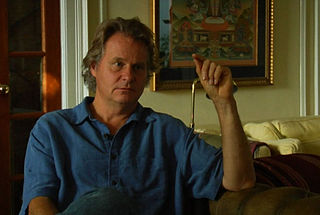A Quote by Wade Davis
Sensitivity to nature is not an innate attribute of indigenous peoples. It is a consequence of adaptive choices that have resulted in the development of highly specialized peripheral skills. but those choices in turn spring from a comprehensive view of nature and the universe in which man and woman are perceived as but elements inextricably linked to the whole.
Related Quotes
Nature is man's inorganic body -- that is to say, nature insofar as it is not the human body. Man lives from nature -- i.e., nature is his body -- and he must maintain a continuing dialogue with it is he is not to die. To say that man's physical and mental life is linked to nature simply means that nature is linked to itself, for man is a part of nature.
In the biblical worldview, the purpose of all creation is to benefit man. This anthropocentric view of nature, and indeed of the whole universe, is completely at odds with the current secular idealization of nature. This secular view posits that nature has its own intrinsic meaning and purpose, independent of man.
Perceived self-efficacy also shapes causal thinking. In seeking solutions to difficult problems, those who perceived themselves as highly efficacious are inclined to attribute their failures to insufficient effort, whereas those of comparable skills but lower perceived self-efficacy ascribe their failures to deficient ability
In order to live, man must act; in order to act, he must make choices; in order to make choices, he must define a code of values; in order to define a code of values, he must know what he is and where he is – i.e. he must know his own nature (including his means of knowledge) and the nature of the universe in which he acts – i.e. he needs metaphysics, epistemology, ethics, which means: philosophy. He cannot escape from this need; his only alternative is whether the philosophy guiding him is to be chosen by his mind or by chance.
The question has been asked, 'What is a woman?' A woman is a person who makes choices. A woman is a dreamer. A woman is a planner. A woman is a maker, and a molder. A woman is a person who makes choices. A woman builds bridges. A woman makes children and makes cars. A woman writes poetry and songs. A woman is a person who makes choices.
What we call music in our everyday language is only a miniature, which our intelligence has grasped from that music or harmony of the whole universe which is working behind everything, and which is the source and origin of nature. It is because of this that the wise of all ages have considered music to be a sacred art. For in music the seer can see the picture of the whole universe; and the wise can interpret the secret and nature of the working of the whole universe in the realm of music.
An Individual, whatever species it might be, is nothing in the Universe. A hundred, a thousand individuals are still nothing. The species are the only creatures of Nature, perpetual creatures, as old and as permanent as it. In order to judge it better, we no longer consider the species as a collection or as a series of similar individuals, but as a whole independent of number, independent of time, a whole always living, always the same, a whole which has been counted as one in the works of creation, and which, as a consequence, makes only a unity in Nature.
Ignorance, vulnerability, fear, anger, and desire are expressions of the infinite potential of your buddha nature. There's nothing inherently wrong or right with making such choices. The fruit of Buddhist practice is simply the recognition that these and other mental afflictions are nothing more or less than choices available to us because our real nature is infinite in scope.
A unifying factor between the different traditions and lineages of Tantra, is that it is feminine in nature. It acknowledges the feminine as the basis from which all the practices spring. Therefore, Tantra is by its nature, the understanding that all phenomenal existence, the universe, or cosmos, that we experience is feminine in nature.
A chess master can keep track of more choices than the number of stars in the galaxy within an instant, but these are people that have truly learned and mastered the choices that they have and how to deal with those choices over a very, very long period of training, so essentially what they're really doing is ruling out all the irrelevant choices and only zeroing in on the most relevant, useful choices at the moment.
The Laws of Nature are just, but terrible. There is no weak mercy in them. Cause and consequence are inseparable and inevitable. The elements have no forbearance. The fire burns, the water drowns, the air consumes, the earth buries. And perhaps it would be well for our race if the punishment of crimes against the Laws of Man were as inevitable as the punishment of crimes against the Laws of Nature -were Man as unerring in his judgments as Nature.





































